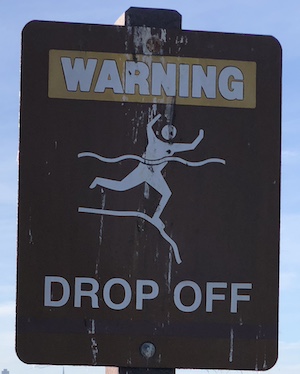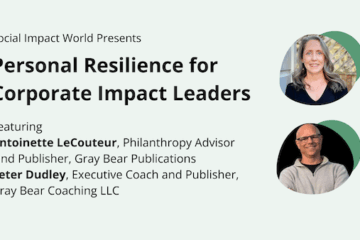Have trouble saying no? You’re not just hurting yourself. Protect your yeses.
One of my clients last Wednesday said a phrase I hear a lot and also very much relate to: “I just have trouble saying no.”
This phrase often comes after something like “I feel so overwhelmed,” or “I’m so exhausted” or “I have no time for the things I want to do.”
When other people ask for your help, how can you turn them down? Even if you’re over-scheduled, overwhelmed, and exhausted, it still feels worse saying no than to take on one more burden.
This particular client kept doing things for family members. He never had time for his own projects. Another client last week complained of her customers always asking for special treatment… and how could she not do whatever her clients needed to make them happy?

Image generated by Adobe Express generative AI
Both of them decided their problem was time management. “I guess I just have to figure out how to do more in less time.”
Even though that’s exactly what they’d been struggling with for ages.
Ask a busy person
When I first got involved in volunteering at my kids’ schools, then coached soccer, then led scouts, I noticed something peculiar.
I was always seeing the same parents. A small but reliable group of people did all the volunteer work across a wide range of organized activities. I marveled at how active they all were, until I realized I was just as active and involved.
There’s an old saying that if you want something done, ask a busy person. Busy people are doers. Busy people know how to manage their time.
And, busy people also have trouble saying no.
I categorize people who have trouble saying no into three types: doormats, pleasers, and can-do types.
Doormats are people who are terrified of conflict and simply let others walk all over them. Pleasers feel like saying yes will make others like them more. Can-do types believe everything can be achieved with just a little more effort.
Some people are more than one type. And many of us move between them. I, for example, am both a pleaser and a can-do type. (Some might say I’m all three.)
Saying yes is okay, and saying no is okay
There are times, of course, when saying yes to someone’s request makes perfect sense. There’s no need to turn into a selfish jerk in a slavish devotion to a bit of paperweight wisdom.
As in any aspect of life, arbitrary rules that sound like simple fixes (a) are rarely simple, and (b) rarely fix anything.
Instead, they just shuffle a misdiagnosed problem from one part of your life to another. Like deciding you need better time management tools to get everything done, when what you really need is to stop saying yes to everyone else.
The key is in being able to decide with intentionality when to say yes and when to say no. What is your reality at the moment? The real risk of saying yes? The real damage of saying no?

No bon mot can give you the answer. You need to be honest and real about your self-assessment in terms of your capabilities, the risks, the rewards, and the relationships affected.
And that’s hard work. It takes courage to be completely honest with yourself. It takes objectivity to know you’re being honest. And it takes effort to gain objectivity.
Trouble saying no? Protect your yeses.
Even with all my criticism of pithy, superficial sayings, sometimes they do work.
For example, what got through to my client on Wednesday was a bon mot of paperweight wisdom I’d heard a year or so ago. I don’t actually like it that much because it sounds wise but is kind of hard to understand. (A bit like me perhaps? Or perhaps opposite to me. I’m not sure.)
The saying was, “I’m saying no to protect my yeses.”
What I like about that is that it’s not a universal prescription or a Methodology or hard-and-fast rule to be applied in every case. (You have to have yeses in order to protect them with a no, so obviously not every request results in a no.)
I also like that this phrase is open to interpretation.
One interpretation is: “I have said yes to too many things and now lack the capacity for any more. I need to deliver on those existing yeses, or my promises will mean nothing.”
Another interpretation is: “I have some available capacity to do what you’re asking, but I also need to keep a few yeses in reserve for true emergencies, and yours is not that kind of emergency.”
My client didn’t tell me his chosen interpretation, and I didn’t tell him how he should interpret it. But I was right: It resonated for him, and at the end of the session he told me he wanted to think more deeply about in the coming weeks.
Ask a busy person
When you say yes to something you know you shouldn’t, you are in effect asking a busy person to do more work. That busy person is future you.
It’s easy—and natural—to think of future-you as a totally different person from current-you. But because current-you thinks you have a really good relationship with future-you, current-you tends to take liberties with future-you’s time and effort.

That’s because future-you will always show up and deliver, even if it means sacrificing sleep, or exercise, or fun, or anything else you may want from life.
Current-you knows this because you sacrifice those things now in order to deliver on the promises past-you made. Past-you is the reason you think you need better time management tools. Future-you thinks you need to be better about saying no today.
When you say yes to something you know you shouldn’t, you’re essentially asking future-you to bail you out. It’s actually kind of rude when you think about it.
Ask many busy people
My other client has a different problem. She always says yes to her customers and ends up having to rely on her project team to do extra work to deliver on her promises. Over time, that will become a problem as the project team members begin to resent her and trust her less.
One day, they may refuse to do the extra work. And when they do, she will be stuck having to go back to her customer and say she can’t deliver on her promises. Which may break their trust in her and cause hard feelings and maybe even lost business.
Saying yes when she knows she shouldn’t is not fair to her project team, and it’s not fair to future her. There is more risk for her in saying yes to everything than in saying no to most extra requests while leaving her yeses in reserve for those times when they will really mean something to the customer.
In fact, she is subtly training her customers to always expect more from her than they’re paying for. And, when you say yes all the time, others may begin to wonder if you’re just sitting around waiting for someone to ask you to do something.
Stop training people to take advantage of you
Saying yes may make you feel like you’re providing great service and impressing your friends and customers and management, but in fact you may be accidentally telling them you have nothing important to do when in fact you are drowning in too many things already.
And I guarantee that whether you’re a doormat, a pleaser, or a can-do, you will later accomplish their thing without letting on how much work it really was, or how much you sacrificed to get it done. The last thing you want is to make them feel bad and say, “Oh, I never would have asked you then!”
So they go on, believing that you are not very busy, that you will do whatever they ask, and that taking on more work won’t cause you any problems. So they may not even thank you because all this time, you’ve been taking on more and more while hiding the fact that you’re drowning.
“I’m protecting my yeses” sounds like just one more bit of vapid paperweight wisdom. But if you have trouble saying no, remember that it’s not just yourself that you’re burdening. And remember that if you don’t start protecting those yeses now, it just gets worse over time.
I know it’s not easy. Trust me, I’m working on it, too.
I can help.
I work with top executives and middle managers to improve their leadership skills, their workplace culture, and the effectiveness of their teams. Also, I help individuals identify and achieve their personal goals. Would you like to become more aware, be more effective, be more empowered, and feel fully prepared for your next steps?
You can help.
Think of one person who would benefit from reading this post. Sharing is caring! Forward it to them right now. They will think you’re super smart and well informed.
Stay super smart and well informed.
Be sure to join my email list! Get notified of new posts here as well as new courses, books, and events from me both here and at Gray Bear Publications.



0 Comments